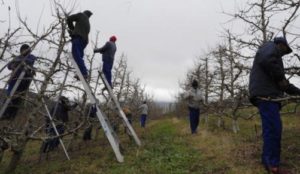- Stay Connected
Africa ‘not a museum for poverty’

By Siphelele Dludla
Lusaka – The African Development Bank (AfDB) on Thursday announced its plans to improve the agriculture sector in Africa.
This it will do by embarking on an ambitious seven-point plan with an aim to transform the sector and be able to empower small scale farmers and youth.
AfDB director of the agriculture and agro-industry department, Chiji Ojukwu, said agriculture remained a major source of income in Africa, but its untapped potential had resulted in persistent poverty and deteriorating food security.
Ojukwu said the AfDB, in collaboration with some partners, had come up with seven enablers that would address problems hindering the growth of agriculture in Africa.
“The AfDB, in collaboration with partners, will contribute to orchestrate, architect, scale and replicate transformation through seven enablers,” he said.
Read also: Female co-op yields results
Ojukwu said the strategies included increasing productivity, realising the value of increased production and increased investment in hard and soft infrastructure. He said other enablers hinged on financing expanded agricultural production, improved agribusiness environment, increased inclusivity, sustainability, nutrition and coordination.
Billions in funding
Ojukwu disclosed that $315 million to $400 billion was required over the next decade or $32 billion to $40 billion annually to transform the agricultural sector in Africa.
Contributing to the discussion, International Fund for Agricultural Development (IFAD) associate vice-resident, Perin Saint-Ange, said IFAD had committed $500 million to the development of the sector in Africa annually for a period of three years starting this year.
Saint-Ange said the aid would target the small-scale farmers and youths so that they could have access to better technology, farming inputs, processing facilities and markets.
AfDB President Akinwumi Adesina said Africa needed to look at agriculture from a different perspective if the continent was to actualise its dream of diversification. Adesina said agriculture had the potential to stabilise economies and should be looked at as a business.
“We can’t keep sitting on potential. We need to change our mindset, agriculture is a business. Why is it that people in agriculture are poor? We must change this, agriculture is a business and a source of creating wealth and employment,” Adesina said. “Africa will not become a museum for poverty. We must have a sense of urgency!”
Adesina also suggested there was a need to revisit most curricula in tertiary education institutions, which were outdated and not relevant to modern farming.
“When we talk about research, let us talk about research that has impact and not academic benefits. We need to change those curriculums taught in the ’50s as they are not applicable to recent times. People don’t eat paper [academic qualifications], they eat food,” Adesina said.Source :LOL
